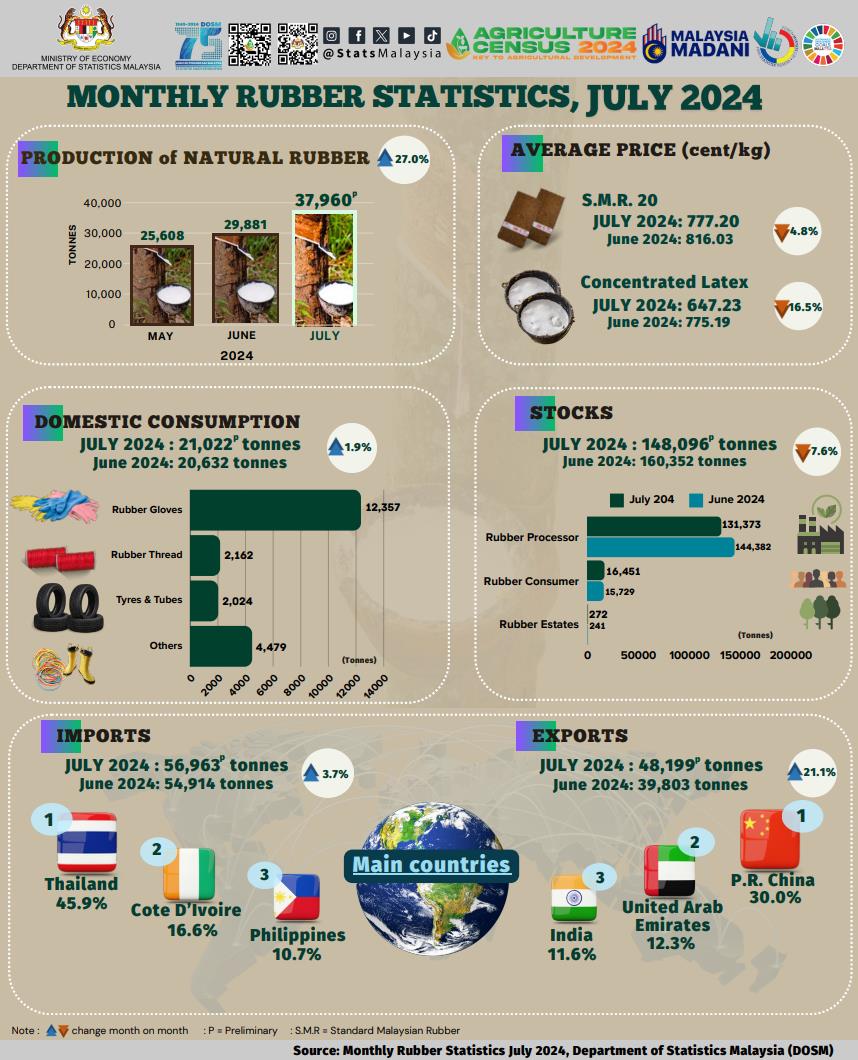Malaysia's Natural Rubber Production Rises 27% In July 2024 - DOSM

Malaysia's natural rubber (NR) production increased by 27.0% to 37,960 tonnes in July 2024 compared to 29,881 tonnes in June 2024, according to the Department of Statistics Malaysia (DOSM).
Year-on-year comparison showed that the production of NR increased by 33.0% from 28,533 tonnes in July 2023.
Chief statistician Datuk Seri Dr Mohd Uzir Mahidin said NR production in July 2024 for Malaysia was mainly contributed by the smallholders sector, at 87.5%, compared to 12.5% by the estates sector.
“Total stocks of NR in July 2024 decreased by 7.6% to 148,096 tonnes as compared to 160,352 tonnes in June 2024, while rubber processors factory contributed 88.7% of the stocks followed by rubber consumers factory (11.1%) and rubber estates (0.2%),” he said in a statement.
Meanwhile, exports of Malaysia's NR amounted to 48,199 tonnes in July 2024, a 21.1% increase compared with June 2024's 39,803 tonnes, contributed by NR-based products such as gloves, tyres, tubes and rubber thread.
DOSM said China remained the main destination for NR exports, which accounted for 30.0% of total exports in July 2024, followed by the United Arab Emirates (12.3%), India (11.6%), Germany (10.6%) and the United States of America (6.7%).
“Gloves were the main exports of rubber-based products with a value of RM1.4 billion in July 2024, an increase of 11.2% as compared to June 2024 (RM1.2 billion),” it said.
Citing the Malaysia Rubber Board Digest published in July 2024, DOSM said the Kuala Lumpur rubber market ruled mixed during the review period with SMR 20 prices moving within the tight range.
Meanwhile, the price of centrifuged latex, 60% dry rubber content, declined throughout the month before slightly recovering towards month's end.
“Generally, the market sentiment was supported by tight NR supply concerns due to bad weather forecasts in major producing countries and was also supported by positive United States economic data, which boosted optimism coupled with hopes for more stimulus measures spurred by weak China's economic performance,” it added.
